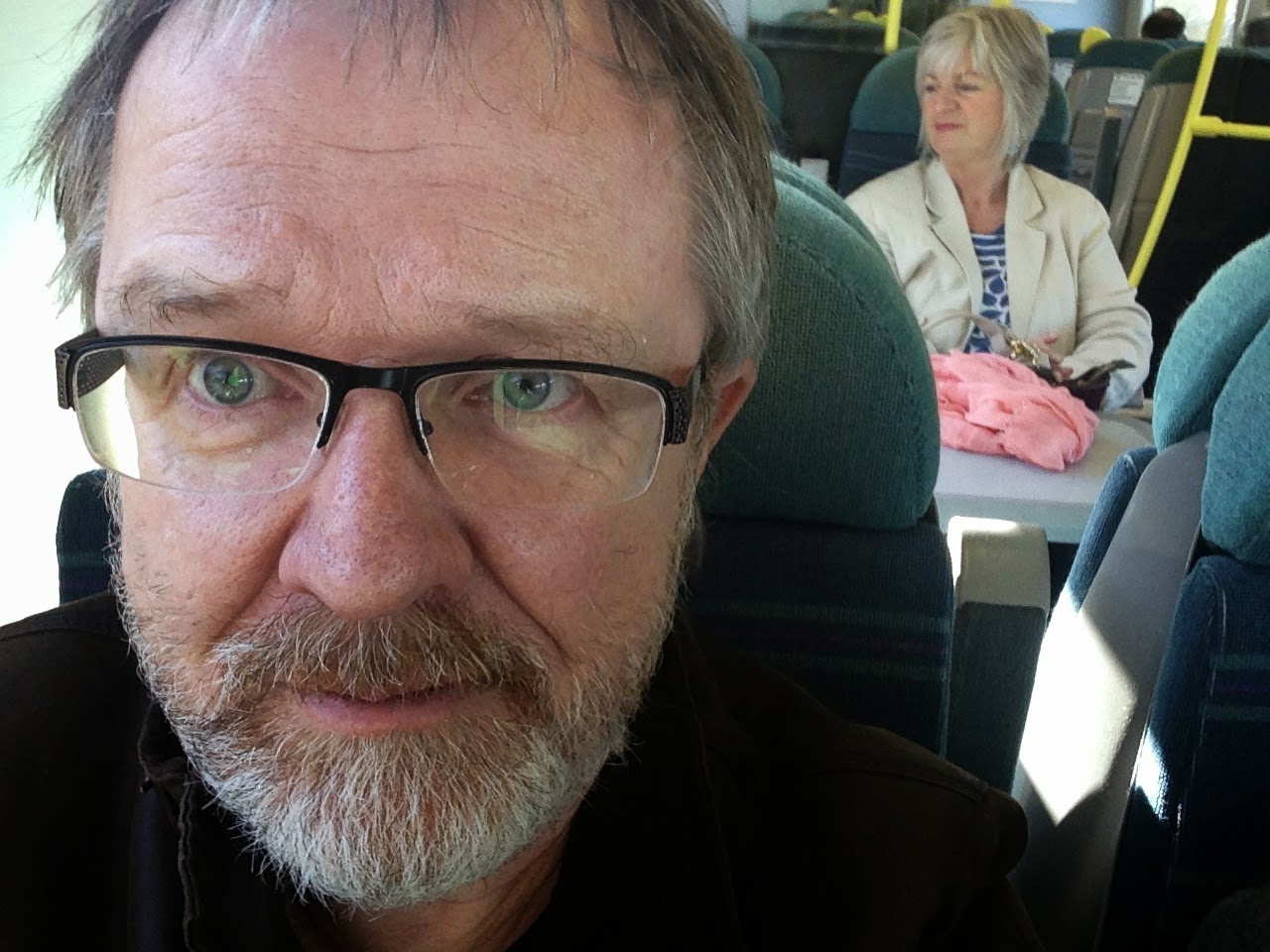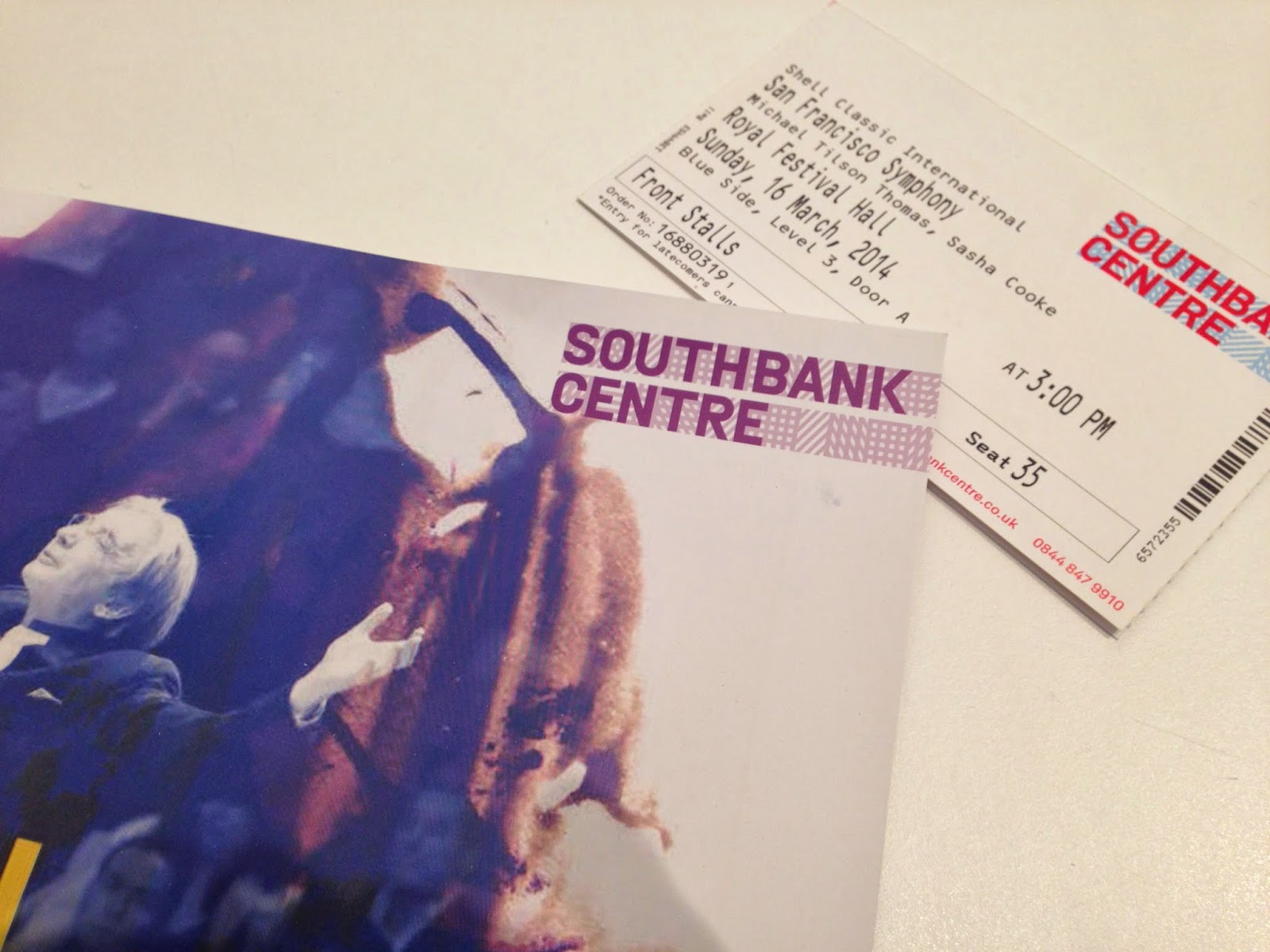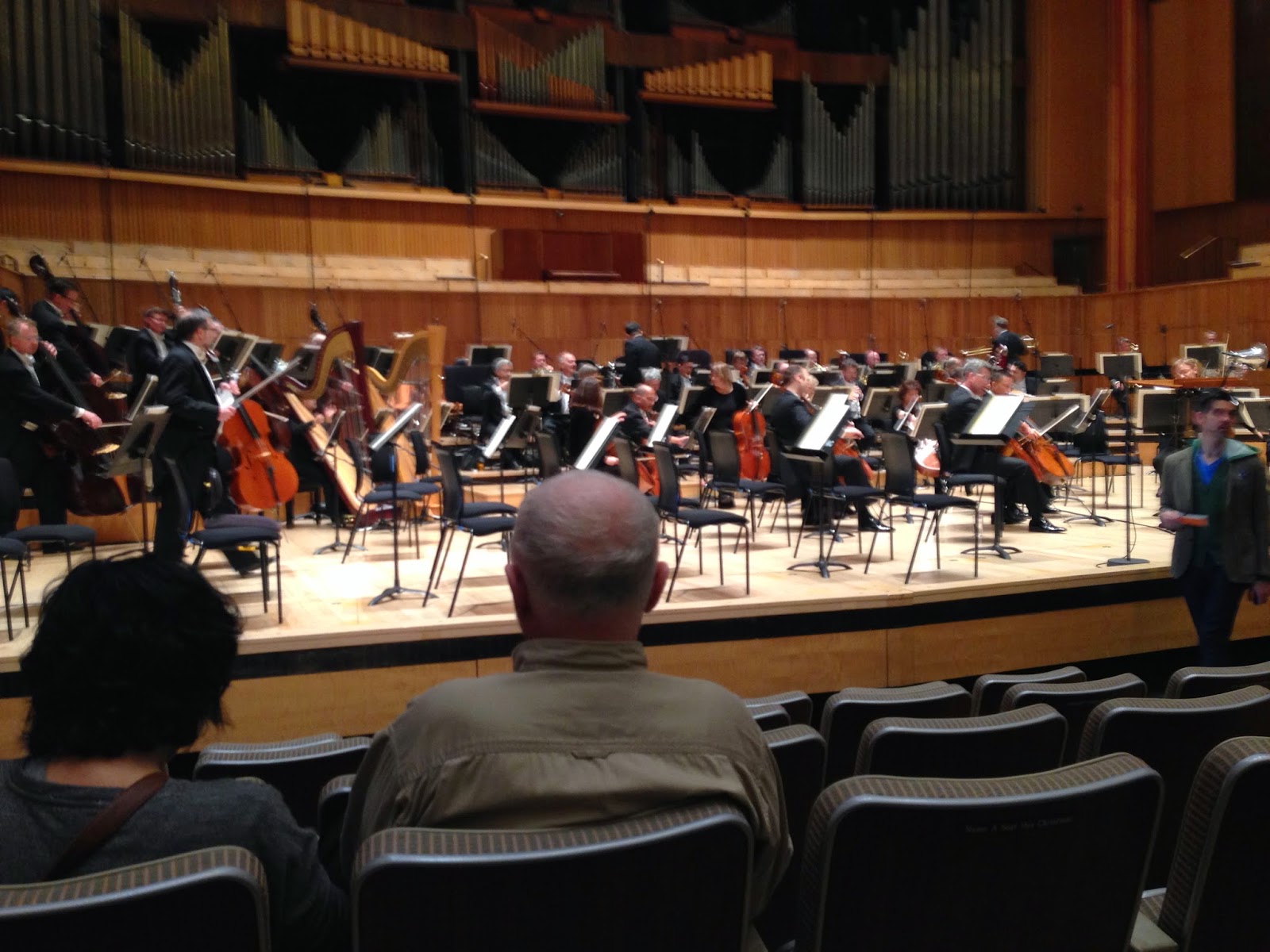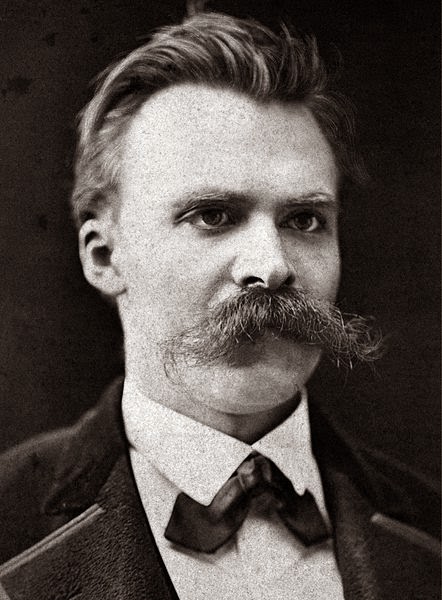On Sunday, I had tickets for the San Francisco Symphony Orchestra’s performance of Mahler’s Third Symphony conducted by their musical director, Michael Tilson Thomas. I bought them as soon as they went on sale last year, long before I was going to be ill with blood clots in my lungs. I’m pleased I didn’t know that there might’ve been any question of my being well enough to attend or I might have missed a terrific concert and one of my favourite pieces of music on a gloriously sunny London Spring day.
I had to take it easy, avoid hills and stairs and slow down my normal walking speed. I did all these things and the result was an inspiringly leisurely trip to the nation’s capital when it, if not me, was looking its best.
I had a seat near to the action in the front stalls at the Royal Festival Hall where I could hear the many tiny details in Mahler’s gigantic but also minutely subtle score. For the first time, I think, I could hear why he gave which line to which instrument and actually hear why the violas’ wheezing tone was so perfect for this bar and the double basses so thrilling elsewhere. This is to say nothing about being so close to those great lines of brass or the exciting “new” singer, the American mezzo soprano, Sasha Cooke (we must hear more of her over here in the UK and I’m sure we will.)
If the San Franciscans had their moments of jet lag in some of the entries, they were mostly magnificent in their response to Michael Tilson Thomas’ profound and often joyful rather than melodramatic reading of the score. Gustav Mahler would’ve approved of his fastidious attention to detail.
Mahler said that his symphony “mirrors the whole world” and that was how it felt to me on Sunday – the natural world and man’s place in it with all the joy and pain confronted face on. Mahler was nothing if he wasn’t brave and this work, running to over an hour and a half, the longest symphony in the standard symphonic repertoire, is long enough to take its listeners into another place, a Mahlerian vision perhaps, but it also challenges us to accept where we are in the here and now.
Not inappropriate for me this week when I’m getting used to the idea that I have a serious but treatable illness after fearing that I might have had something much more final. Mahler and London in the Spring were moving reminders of what we must all face at some time or another. On the other side of those thoughts, Mahler tells us, in the 3rd Symphony at least, is joy.
The fourth movement of the symphony is a setting of Friedrich Nietzsche’s Midnight Song from his book Also sprach Zarathustra and it couldn’t have better summed up my thoughts that day.
Oh Mensch! Gib acht!
Was spricht die tiefe Mitternacht?
»Ich schlief, ich schlief—,
Aus tiefem Traum bin ich erwacht:—
Die Welt ist tief,
Und tiefer als der Tag gedacht.
Tief ist ihr Weh—,
Lust—tiefer noch als Herzeleid:
Weh spricht: Vergeh!
Doch alle Lust will Ewigkeit—,
—will tiefe, tiefe Ewigkeit!
Here is the magnificent mezzo-soprano Waltraud Meier with Paavo Jarvi conducting the HR Orchester Frankfurt in a provocatively red-clawed image of man’s place in the natural order:
It is now available as a paperback or on Kindle (go to your region’s Amazon site for Kindle orders)
…or from Amazon:









